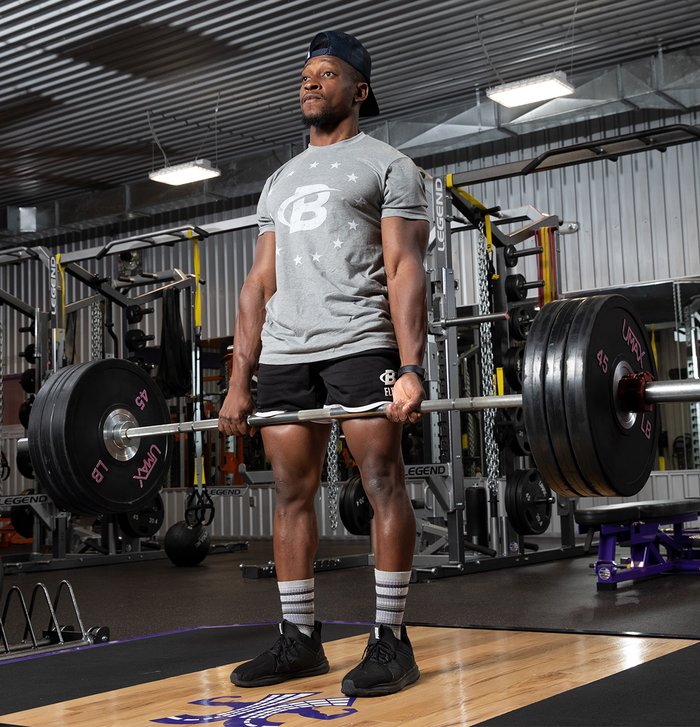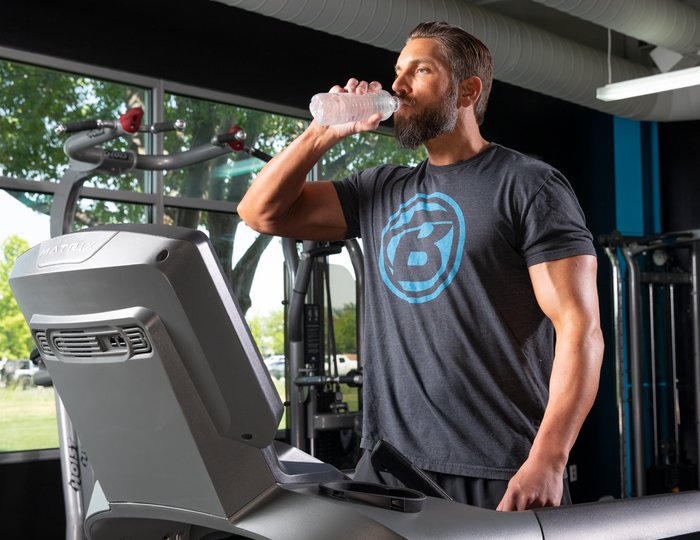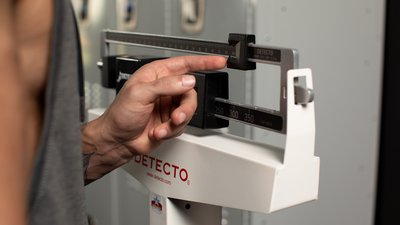Can overweight people build muscle the same way leaner people do? Or does body weight somehow prevent hypertrophy? Those were the questions a study by a group of British researchers set out to answer recently.
The results are good news for people with a high BMI who are wondering if strength training is "worth it," and for physicians and public health officials working to reduce the prevalence of obesity.
The Blood Doesn't Lie
In a limited study of 17 male and female subjects, ranging from lean to overweight, participants aged 19-32 did a series of controlled resistance exercises. Once the researchers took blood samples and muscle biopsies, participants began exercising. They warmed up with 3 sets of 5 reps with light weights, then performed single reps to failure with increasing loads. Researchers then took more blood and tissue samples every hour for four hours after the participants exercised.

After analyzing the samples, the researchers concluded that there was no relationship between obesity and muscle protein synthesis after resistance exercise. Larger participants gained just as much muscle tissue as their smaller counterparts. Neither BMI nor total body-fat percentage affected the rate of muscle gain.[1]
What It Means For You
Fat-loss tends to dominate the training conversation when it comes to body composition changes. But this study shows that everyone can build muscle equally—and we'd suggest they should. After all, muscle is the gift that keeps on giving. Every pound of it you add helps you be more active and stronger, burning more calories and enjoying life more. It's also metabolically active tissue, meaning that it burns more calories day in, day out than fat tissue does.
No, it probably doesn't mean you—or anyone—should skip cardio entirely. Sorry! But a reasonable, sustainable approach to strength training and cardio, like lifting regularly and walking as much as possible, can be just the thing to help you get the maximum benefits of both modalities.
That's the kind of approach that helped Pasquale "Possible Pat" Brocco lose well over 300 pounds, and that typifies the most popular Bodybuilding.com BodyFit Elite programs, including Kris Gethin's 8-Week Hardcore Trainer, Jamie Eason's LiveFit, and Bill Phillips' Back To Fit.

This is also an important result for physicians and public health officials because it suggests that by doing resistance training, people of all sizes can take advantage of the relationship between building skeletal muscle and building a healthy metabolism, and staying healthy as they age.
The authors do caution that being obese can reduce hypertrophy if the individual is older or sedentary. Both of these factors are strongly associated with what is known as "anabolic resistance," which means struggling to build muscle. So, take your time, start where you are, and keep moving forward. This isn't a race, it's a life-long project.
References
1. Hulston, C. J., Woods, R. M., Dewhurst‐Trigg, R., Parry, S. A., Gagnon, S., Baker, L., ... & van Hall, G. (2018). Resistance exercise stimulates mixed muscle protein synthesis in lean and obese young adults. Physiological Reports, 6(14), e13799.



